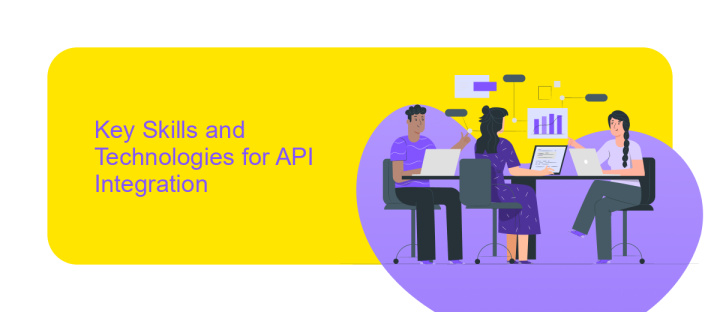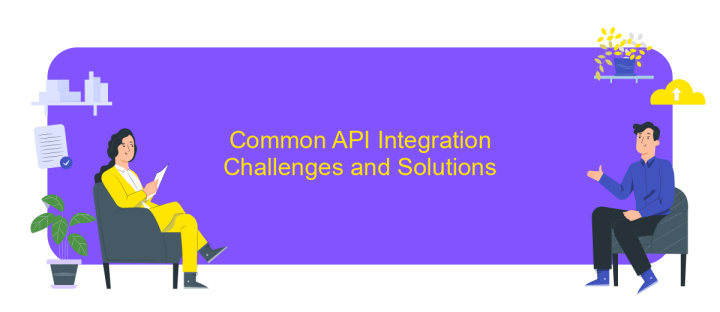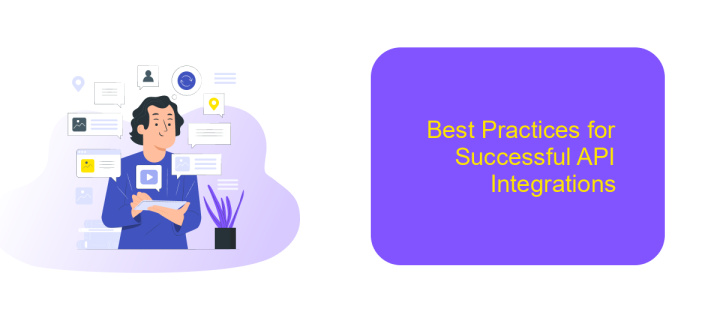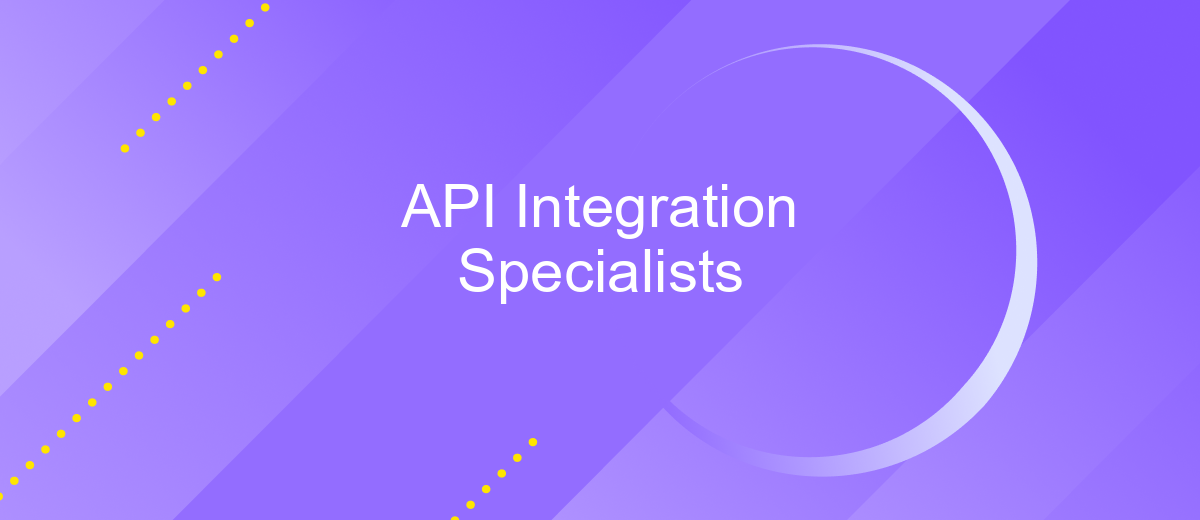API Integration Specialists
In today's rapidly evolving digital landscape, API Integration Specialists play a crucial role in streamlining business operations and enhancing connectivity between diverse software systems. By seamlessly connecting applications, these experts enable organizations to optimize workflows, improve data accuracy, and drive innovation. As businesses increasingly rely on interconnected technologies, the demand for skilled API Integration Specialists continues to grow, making them indispensable in achieving technological synergy and operational excellence.
Understanding the Role of an API Integration Specialist
An API Integration Specialist plays a crucial role in modern software development, acting as a bridge between different systems and applications. These professionals ensure seamless communication and data exchange, enabling businesses to leverage various technologies efficiently. They are responsible for designing, implementing, and managing APIs that connect disparate systems, enhancing functionality and user experience.
- Design and develop API architectures and solutions.
- Ensure secure and efficient data exchange between systems.
- Collaborate with developers to integrate APIs into applications.
- Monitor and troubleshoot API performance issues.
- Stay updated with the latest API technologies and trends.
API Integration Specialists must possess strong technical skills, including proficiency in programming languages, understanding of network protocols, and familiarity with API management tools. Additionally, they should have excellent problem-solving abilities and a keen eye for detail to identify integration challenges and devise effective solutions. By facilitating smooth interactions between systems, these specialists drive innovation and operational efficiency within organizations.
Key Skills and Technologies for API Integration

API Integration Specialists require a diverse set of skills to effectively connect and manage different software systems. Proficiency in programming languages such as JavaScript, Python, or Java is essential for writing and customizing API scripts. Understanding RESTful and SOAP protocols is crucial, as these are the most common methods for API communication. Additionally, knowledge of authentication methods like OAuth and API keys ensures secure data exchange between platforms. Familiarity with data formats such as JSON and XML is also necessary for parsing and structuring data during integration.
Technologies and tools play a pivotal role in facilitating API integrations. Platforms like ApiX-Drive simplify the process by providing a user-friendly interface to automate workflows without extensive coding. These tools support various applications, enabling seamless data transfer and synchronization across systems. Experience with API management platforms such as Postman or Swagger is beneficial for testing and monitoring API performance. Furthermore, strong problem-solving skills and the ability to troubleshoot integration issues are vital for ensuring smooth and efficient operations.
Common API Integration Challenges and Solutions

Integrating APIs is a crucial task for many businesses, but it often comes with its own set of challenges. These challenges can hinder the seamless connectivity and functionality that APIs are meant to provide. Understanding these obstacles and their solutions is essential for API Integration Specialists to ensure successful implementation.
- Compatibility Issues: Different APIs may have varying protocols and data formats, making integration difficult. Solution: Use middleware tools that can translate between different formats and protocols.
- Security Concerns: APIs can be vulnerable to attacks if not properly secured. Solution: Implement robust authentication and encryption methods to protect data integrity.
- Rate Limiting: APIs often have usage limits that can disrupt service. Solution: Implement efficient caching strategies and monitor API usage to optimize requests.
By addressing these common challenges with targeted solutions, API Integration Specialists can enhance the reliability and performance of their integrations. This proactive approach not only streamlines processes but also ensures that the APIs contribute effectively to the business objectives.
Best Practices for Successful API Integrations

API integration is a critical component for modern software development, enabling seamless communication between different systems. To achieve successful API integrations, it's essential to follow best practices that ensure reliability, security, and performance. Understanding the API documentation thoroughly is the first step towards a smooth integration process.
It's crucial to maintain a clear and consistent naming convention for endpoints and parameters. This practice not only enhances readability but also simplifies future updates and maintenance. Additionally, implementing robust error handling mechanisms can help identify and resolve issues promptly, minimizing downtime and improving user experience.
- Ensure comprehensive testing of API endpoints to identify potential issues early.
- Utilize authentication and authorization protocols to safeguard data.
- Monitor API performance and set up alerts for unusual activity.
- Document integration processes for easier troubleshooting and updates.
Regularly reviewing and updating APIs is vital to adapt to evolving business needs and technological advancements. By adhering to these best practices, organizations can achieve efficient and secure API integrations, enhancing overall system functionality and user satisfaction. Continuous learning and adaptation are key to staying ahead in the dynamic landscape of API development.


The Future of API Integration and Career Outlook
The future of API integration is set to be transformative as businesses increasingly rely on seamless connectivity between diverse software systems. As technology evolves, the demand for API integration specialists is expected to grow, driven by the need for efficient data exchange and process automation. Innovations such as AI-driven integration platforms and low-code solutions are simplifying the integration process, making it more accessible to non-technical users. Services like ApiX-Drive are at the forefront, offering user-friendly tools that enable businesses to connect multiple applications without extensive coding knowledge.
Career prospects for API integration specialists are promising, with opportunities spanning across various industries such as finance, healthcare, and e-commerce. As organizations prioritize digital transformation, these specialists will play a critical role in ensuring that systems communicate effectively. Professionals in this field should focus on continuous learning to stay updated with the latest technologies and integration techniques. Mastering tools like ApiX-Drive can provide a competitive edge, enabling specialists to deliver robust and scalable integration solutions that meet evolving business needs.
FAQ
What is an API Integration Specialist?
Why is API integration important for businesses?
How do API Integration Specialists ensure data security during integration?
What are common challenges faced during API integration?
Can API integration be automated, and how?
Apix-Drive will help optimize business processes, save you from a lot of routine tasks and unnecessary costs for automation, attracting additional specialists. Try setting up a free test connection with ApiX-Drive and see for yourself. Now you have to think about where to invest the freed time and money!

